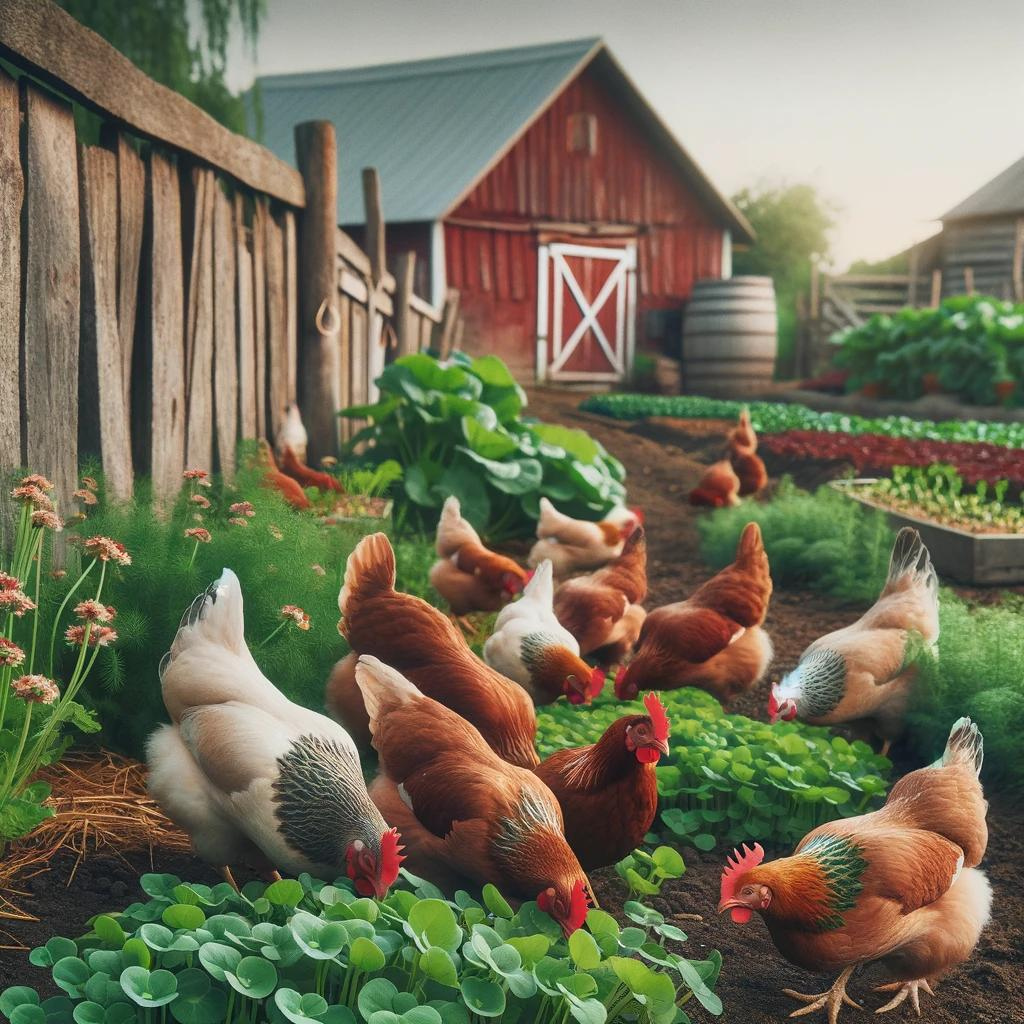
Yes, chickens can eat purslane. It’s a nutritious plant that can be included in their diet as a foraging treat. Ensure the purslane is clean and free from pesticides or contaminants before offering it to chickens.
Is Purslane Safe for Chickens to Consume?
Yes, purslane is safe for chickens to consume. It is a nutritious plant that can be part of their foraging diet. Ensure the purslane is clean and free from contaminants before allowing chickens to eat it.
Can Chickens Eat Cooked Purslane?
Chickens typically consume plants in their raw form. Cooking purslane is unnecessary for chickens. Offer it fresh and clean as a part of their foraging vegetation.
Can Chickens Eat Raw Purslane?
Yes, chickens can eat raw purslane. It’s a nutritious plant that can be offered as part of their foraging diet. Ensure it’s clean and free from contaminants before allowing chickens to consume it.
Can Baby Chicks Safely Eat Purslane?
Yes, baby chicks can safely eat small, tender pieces of raw purslane. Introduce it gradually into their diet and ensure the plant is clean and free from contaminants. Monitor their response and consider it as part of their diverse and balanced nutrition.
What Nutritional Value Does Purslane Provide to Chickens?
Purslane provides essential nutrients to chickens, including vitamins (such as vitamin C and A), minerals (like magnesium and potassium), and omega-3 fatty acids. It can be a valuable addition to their foraging diet, contributing to their overall nutritional intake.
How Should Purslane Be Prepared Before Feeding It to Chickens?
Purslane can be offered to chickens raw without any specific preparation. Ensure it’s clean and free from contaminants before allowing them to consume it. Introduce it gradually into their diet, starting with small amounts to monitor their response.
Can Purslane Help with Chickens’ Health or Nutrition?
Yes, purslane can contribute to chickens’ health and nutrition. It provides essential vitamins, minerals, and omega-3 fatty acids, enhancing their overall diet when included as part of their foraging vegetation.
Can Chickens Develop Digestive Issues from Eating Purslane?
Chickens generally do not develop digestive issues from eating purslane in moderation. However, as with introducing any new food, start gradually to monitor their response and ensure it doesn’t cause any adverse effects. Purslane is usually well-tolerated by chickens.
Are There Any Risks or Side Effects of Feeding Purslane to Chickens?
Feeding purslane to chickens carries minimal risks when offered in moderation. Ensure the plant is clean and free from contaminants to prevent potential issues. Monitor for any adverse reactions as you introduce it into their diet.
Can Chickens Overeat Purslane?
Chickens are not likely to overeat purslane, as they generally regulate their foraging. However, as with any new food, introduce purslane gradually to prevent potential issues and maintain a balanced diet.
Can Purslane Be Fed to Chickens as a Regular Treat?
Yes, purslane can be fed to chickens as a regular treat, but in moderation. Including a variety of forage like purslane in their diet can contribute to their overall nutrition. Ensure the purslane is clean and free from contaminants before offering it to chickens.
Can Purslane Be Harmful to Chickens if Consumed in Large Quantities?
While purslane is generally safe for chickens, consuming it in excessively large quantities might lead to digestive issues. Moderation is advised to maintain a balanced diet and prevent potential problems. Monitor the chickens for any adverse reactions as you introduce purslane into their diet.
Can Purslane Be Included in a Balanced Diet for Chickens?
Yes, purslane can be included in a balanced diet for chickens. It offers essential nutrients and can contribute to their overall well-being when provided as part of their foraging vegetation.
Can Purslane Affect the Taste or Quality of Eggs Laid by Chickens?
There is no substantial evidence to suggest that purslane significantly affects the taste or quality of eggs laid by chickens. The primary factors influencing egg taste and quality are the chickens’ overall diet and living conditions. Providing a well-balanced diet and maintaining a healthy environment for the chickens are key factors in ensuring high-quality eggs.
*Always speak with your veterinarian before adding a new food to your chicken’s diet.